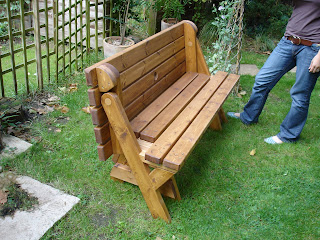Strange feeling saying goodbye to everyone at work even though you are going back. I've never said a permanent goodbye to anyone I've known for 8 years, except at a funeral of course, so this experience was odd. But there is too much to look forward to, I don't fancy getting caught up in any negative emotions.
First week of my three month journey was spent in Italy where two of my friends were getting married. The wife and I avoided honeymooning in Italy in August last year thinking it would be too hot. Good move! Last week it was between 30 and 35 degrees C most days and we were without air-conditioning for most of the week. However, the magnificence of the locations more than made up for the lack of sleep, continual sweating, heat stroke and general crabbiness. See what I mean...?



 Love it...
Love it...








